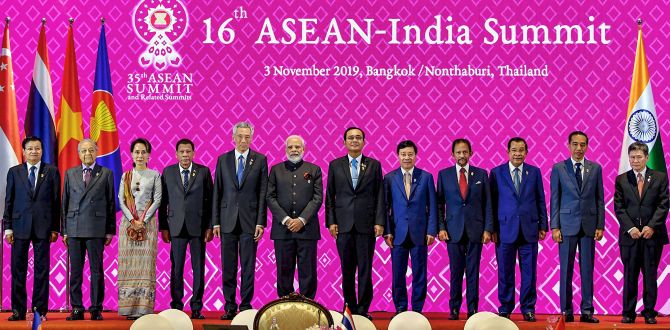Bangkok: India decided Monday not to join the mega Regional Comprehensive Economic Partnership (RCEP) deal as negotiations failed to address New Delhi’s concerns, government sources said.
India’s stand at RCEP is a strong reflection of Prime Minister Narendra Modi’s strong leadership and India’s rising stature in the world. India’s decision will greatly help Indian farmers, MSMEs and dairy sector, they said. India’s stand is a mixture of pragmatism, the urge to safeguard interests of the poor and the effort to give an advantage to India’s service sector.
While not shying away from opening up to global competition across sectors, India made a strong case for an outcome which is favourable to all countries and all sectors, the sources stated.
The RCEP comprises 10 ASEAN nations and six of its FTA (free trade agreement) partners – China, India, Japan, South Korea, India, Australia and New Zealand. The RCEP aims to facilitate the creation of the biggest free-trade region in the world as the 16-nation grouping is home to 3.6 billion people, or nearly half the world’s population.
The trade ministers from 16 RCEP countries failed Saturday to resolve the outstanding issues identified by India, though back-channel talks continued on the sidelines of the ASEAN summit to resolve the sticky issues.
India has been forcefully raising the issue of market access as well as protected lists of goods mainly to shield its domestic market as there have been fears that the country may be flooded with cheap Chinese agricultural and industrial products once the country signs the deal.
The RCEP negotiations were launched by ASEAN leaders and six other countries during the 21st ASEAN Summit in Phnom Penh in November 2012. The objective of launching RCEP negotiations was to achieve a modern, comprehensive, high-quality, and mutually beneficial economic partnership agreement among the ASEAN member States and its FTA partners.
PTI






































